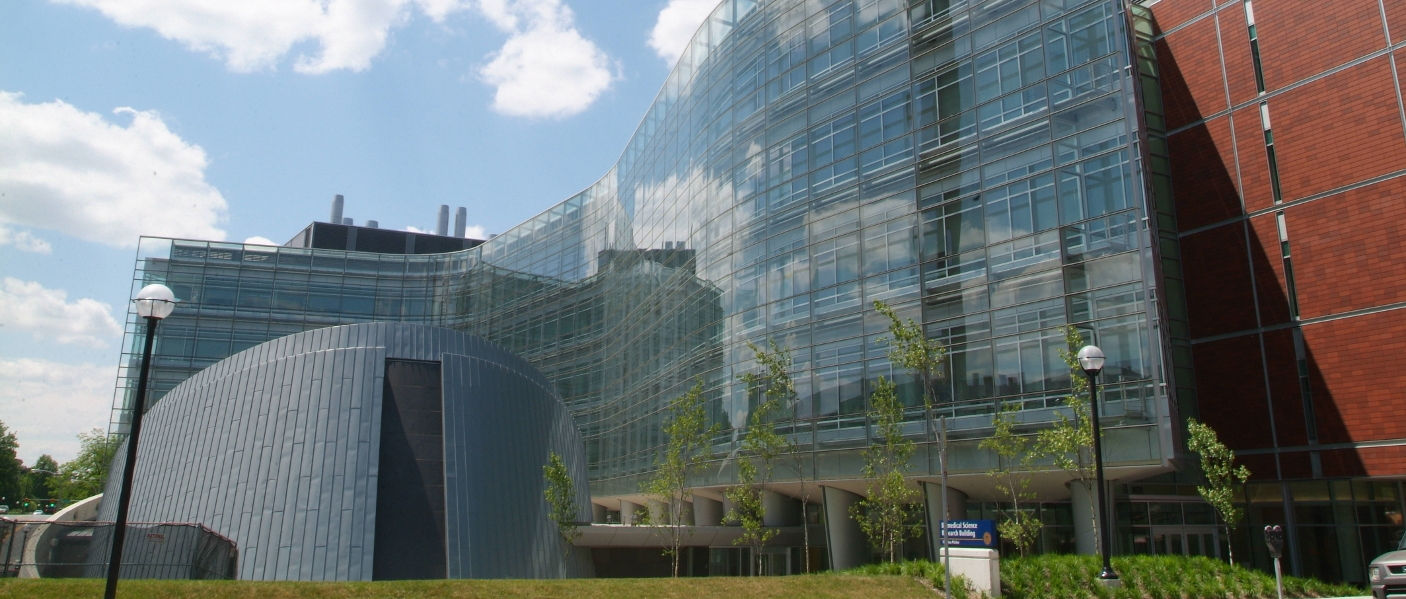

 Respiratory syncytial virus (RSV) infects nearly all infants by age 2 and is the leading cause of bronchiolitis in children worldwide. It is estimated by the CDC that up to 125,000 pediatric hospitalizations in the United States each year are due to RSV, at an annual cost of over $700 million. While RSV is especially detrimental in very young infants whose airways are small and easily occluded, RSV has become recognized as an important pathogen in transplant recipients, the elderly, as well as patients with chronic lung disease including asthma and COPD. Although anti-RSV antibodies are available and appear to alleviate severe disease, they perform best when given prophylactically, and recently vaccines are indicated for older children and adults along with maternal vaccination strategy that may or may not alter disease in susceptible infants. Knowledge of how the early life immune response is generated and “trained” would better inform vaccine efficacy to understand how to best immunize infants. Several epidemiological studies link severe RSV infection with the later development of hyper-reactive airway disease that persists even years after the initial viral infection has resolved and increased the relative risk of developing asthma by 3-5-fold. RSV has also been associated with asthma exacerbations and can cause prolonged episodes of illness. It is likely that RSV, and other viral infections, drive an underlying immune phenotype and early disease with severe RSV is an independent variable for allergic asthma at age 7. The neonatal immune response is immature and evolutionarily skewed away from inflammatory responses in utero to avoid abortive birth. While recent development of RSV vaccines can protect adults and older children, their efficacy for infants have not been established and may not provide adequate long-term protection in a subset of susceptible infants. At birth, the immune system must quickly mature and adapt to the new non-sterile environment that includes both pathogenic and environmental stimuli. Previous studies with neonatal RSV infection have demonstrated changes in lungs including mucus production and increased immune cells that persist, including DC and ILC2 that produce IL-5 and IL-13. Few studies have examined how early viral (RSV) infections alter immune responses and subsequent allergen sensitization and lung function. A recent large clinical study in Lancet has indicated that patients who experienced severe lower respiratory tract infection by 2 years of age (RSV the most common) have twice the risk of dying prematurely from respiratory disease. Thus, early infections can have life-long consequences, possibly including altered lung development and structure that leads to reduced function throughout life.
Respiratory syncytial virus (RSV) infects nearly all infants by age 2 and is the leading cause of bronchiolitis in children worldwide. It is estimated by the CDC that up to 125,000 pediatric hospitalizations in the United States each year are due to RSV, at an annual cost of over $700 million. While RSV is especially detrimental in very young infants whose airways are small and easily occluded, RSV has become recognized as an important pathogen in transplant recipients, the elderly, as well as patients with chronic lung disease including asthma and COPD. Although anti-RSV antibodies are available and appear to alleviate severe disease, they perform best when given prophylactically, and recently vaccines are indicated for older children and adults along with maternal vaccination strategy that may or may not alter disease in susceptible infants. Knowledge of how the early life immune response is generated and “trained” would better inform vaccine efficacy to understand how to best immunize infants. Several epidemiological studies link severe RSV infection with the later development of hyper-reactive airway disease that persists even years after the initial viral infection has resolved and increased the relative risk of developing asthma by 3-5-fold. RSV has also been associated with asthma exacerbations and can cause prolonged episodes of illness. It is likely that RSV, and other viral infections, drive an underlying immune phenotype and early disease with severe RSV is an independent variable for allergic asthma at age 7. The neonatal immune response is immature and evolutionarily skewed away from inflammatory responses in utero to avoid abortive birth. While recent development of RSV vaccines can protect adults and older children, their efficacy for infants have not been established and may not provide adequate long-term protection in a subset of susceptible infants. At birth, the immune system must quickly mature and adapt to the new non-sterile environment that includes both pathogenic and environmental stimuli. Previous studies with neonatal RSV infection have demonstrated changes in lungs including mucus production and increased immune cells that persist, including DC and ILC2 that produce IL-5 and IL-13. Few studies have examined how early viral (RSV) infections alter immune responses and subsequent allergen sensitization and lung function. A recent large clinical study in Lancet has indicated that patients who experienced severe lower respiratory tract infection by 2 years of age (RSV the most common) have twice the risk of dying prematurely from respiratory disease. Thus, early infections can have life-long consequences, possibly including altered lung development and structure that leads to reduced function throughout life.
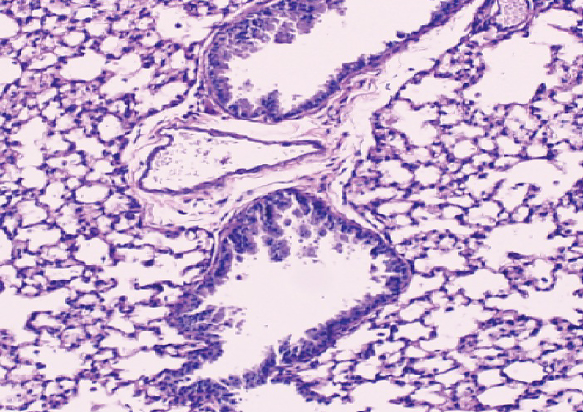
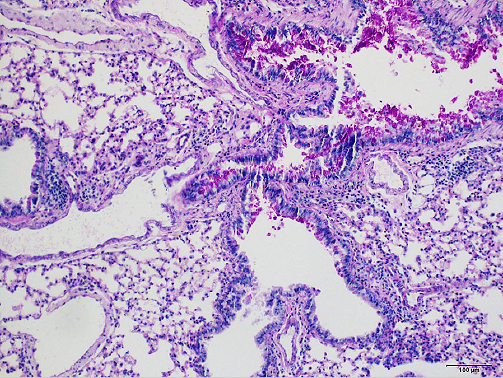
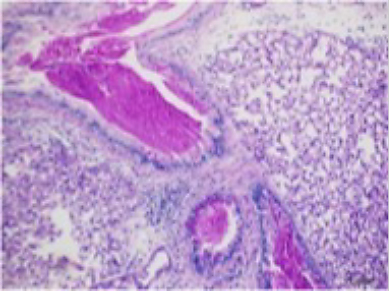
 ON THE COVER
ON THE COVER
Breast team reviewing a patient's slide. (From left to right) Ghassan Allo, Fellow; Laura Walters, Clinical Lecturer; Celina Kleer, Professor. See Article 2014Department Chair |

newsletter
INSIDE PATHOLOGYAbout Our NewsletterInside Pathology is an newsletter published by the Chairman's Office to bring news and updates from inside the department's research and to become familiar with those leading it. It is our hope that those who read it will enjoy hearing about those new and familiar, and perhaps help in furthering our research. CONTENTS
|
 ON THE COVER
ON THE COVER
Autopsy Technician draws blood while working in the Wayne County morgue. See Article 2016Department Chair |

newsletter
INSIDE PATHOLOGYAbout Our NewsletterInside Pathology is an newsletter published by the Chairman's Office to bring news and updates from inside the department's research and to become familiar with those leading it. It is our hope that those who read it will enjoy hearing about those new and familiar, and perhaps help in furthering our research. CONTENTS
|
 ON THE COVER
ON THE COVER
Dr. Sriram Venneti, MD, PhD and Postdoctoral Fellow, Chan Chung, PhD investigate pediatric brain cancer. See Article 2017Department Chair |

newsletter
INSIDE PATHOLOGYAbout Our NewsletterInside Pathology is an newsletter published by the Chairman's Office to bring news and updates from inside the department's research and to become familiar with those leading it. It is our hope that those who read it will enjoy hearing about those new and familiar, and perhaps help in furthering our research. CONTENTS
|
 ON THE COVER
ON THE COVER
Director of the Neuropathology Fellowship, Dr. Sandra Camelo-Piragua serves on the Patient and Family Advisory Council. 2018Department Chair |

newsletter
INSIDE PATHOLOGYAbout Our NewsletterInside Pathology is an newsletter published by the Chairman's Office to bring news and updates from inside the department's research and to become familiar with those leading it. It is our hope that those who read it will enjoy hearing about those new and familiar, and perhaps help in furthering our research. CONTENTS
|
 ON THE COVER
ON THE COVER
Residents Ashley Bradt (left) and William Perry work at a multi-headed scope in our new facility. 2019Department Chair |

newsletter
INSIDE PATHOLOGYAbout Our NewsletterInside Pathology is an newsletter published by the Chairman's Office to bring news and updates from inside the department's research and to become familiar with those leading it. It is our hope that those who read it will enjoy hearing about those new and familiar, and perhaps help in furthering our research. CONTENTS
|
 ON THE COVER
ON THE COVER
Dr. Kristine Konopka (right) instructing residents while using a multi-headed microscope. 2020Department Chair |

newsletter
INSIDE PATHOLOGYAbout Our NewsletterInside Pathology is an newsletter published by the Chairman's Office to bring news and updates from inside the department's research and to become familiar with those leading it. It is our hope that those who read it will enjoy hearing about those new and familiar, and perhaps help in furthering our research. CONTENTS
|
 ON THE COVER
ON THE COVER
Patient specimens poised for COVID-19 PCR testing. 2021Department Chair |

newsletter
INSIDE PATHOLOGYAbout Our NewsletterInside Pathology is an newsletter published by the Chairman's Office to bring news and updates from inside the department's research and to become familiar with those leading it. It is our hope that those who read it will enjoy hearing about those new and familiar, and perhaps help in furthering our research. CONTENTS
|
 ON THE COVER
ON THE COVER
Dr. Pantanowitz demonstrates using machine learning in analyzing slides. 2022Department Chair |

newsletter
INSIDE PATHOLOGYAbout Our NewsletterInside Pathology is an newsletter published by the Chairman's Office to bring news and updates from inside the department's research and to become familiar with those leading it. It is our hope that those who read it will enjoy hearing about those new and familiar, and perhaps help in furthering our research. CONTENTS
|
 ON THE COVER
ON THE COVER
(Left to Right) Drs. Angela Wu, Laura Lamps, and Maria Westerhoff. 2023Department Chair |

newsletter
INSIDE PATHOLOGYAbout Our NewsletterInside Pathology is an newsletter published by the Chairman's Office to bring news and updates from inside the department's research and to become familiar with those leading it. It is our hope that those who read it will enjoy hearing about those new and familiar, and perhaps help in furthering our research. CONTENTS
|
 ON THE COVER
ON THE COVER
Illustration representing the various machines and processing used within our labs. 2024Department Chair |

newsletter
INSIDE PATHOLOGYAbout Our NewsletterInside Pathology is an newsletter published by the Chairman's Office to bring news and updates from inside the department's research and to become familiar with those leading it. It is our hope that those who read it will enjoy hearing about those new and familiar, and perhaps help in furthering our research. CONTENTS
|
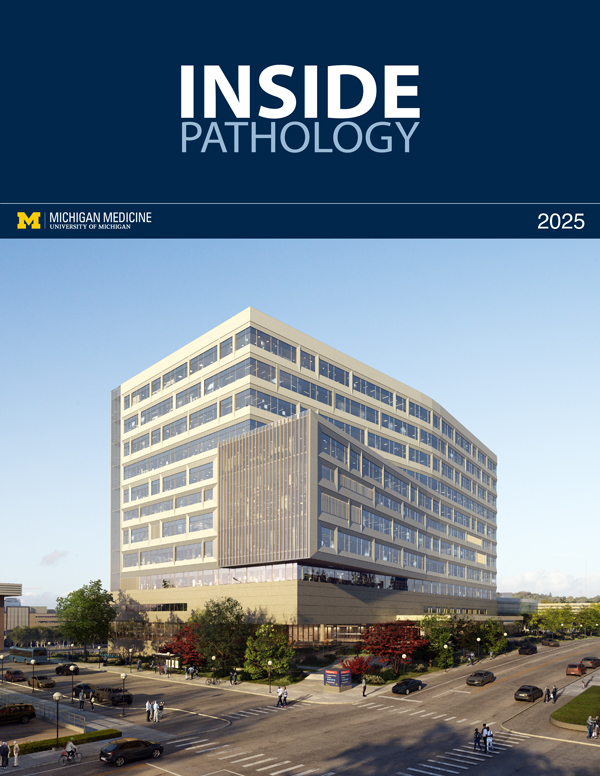 ON THE COVER
ON THE COVER
Rendering of the D. Dan and Betty Khn Health Care Pavilion. Credit: HOK 2025Department Chair |

newsletter
INSIDE PATHOLOGYAbout Our NewsletterInside Pathology is an newsletter published by the Chairman's Office to bring news and updates from inside the department's research and to become familiar with those leading it. It is our hope that those who read it will enjoy hearing about those new and familiar, and perhaps help in furthering our research. CONTENTS
|

MLabs, established in 1985, functions as a portal to provide pathologists, hospitals. and other reference laboratories access to the faculty, staff and laboratories of the University of Michigan Health System’s Department of Pathology. MLabs is a recognized leader for advanced molecular diagnostic testing, helpful consultants and exceptional customer service.